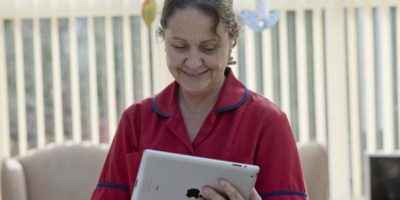Robyn Taylor, one of our regular activity coordinator columnists, talks about how to ensure your residents still feel that they have their independence, and how to do your bit for the elderly in your community too…
It’s funny the things that get you thinking. After the news of Prince Philip’s car crash last month, and all the controversy surrounding whether or not elderly people should be able to drive, it made me think about a conversation I once had with a lady in my care home.
We were talking about the changes in her life, and she said the hardest thing she had to overcome wasn’t the aches and pains of getting old, or even the transition of moving into a care home, but was actually when her driving license was taken away, and she felt it was the start of her losing her independence.
There are lots of ways people can lose their independence, but not being able to drive is a major one, and no matter what our opinion is on older drivers, we need to support those who are in that situation. Many people do not want to feel a burden on their families or carers so they do not want to ask constantly for a lift, especially if it’s at an inconvenient time. This means that they will probably just stop asking for lifts, and stay in their homes, increasingly isolated, and often becoming anxious and depressed. This can be the same at a care home, when people reduce their involvement in day trips, and then activities, soon finding that leaving their own own room is a challenge.

How can we help people avoid losing their independence and their desire to be a part of the larger community?
In The Care Home:
- Make sure families know they can still take their loved ones out and about, to family events or out for coffee.
- Organise outings into the local area with a small group. In most homes it is the activity coordinator’s role to organise this, however in ‘Outstanding’ homes, the whole team gets involved.
- Find out what new and current residents used to do when living independently at home – if they went to the supermarket every Saturday morning, or for a drive on Sundays, could you then continue this for them, bringing a few other residents along with you?
- Of course, money is always an issue. So, how do we fund trips out? At one care home I worked in, taxi costs would be split between the residents who came out with us. This way the budget we had was spent on in-house entertainment that everyone was able to join in with. Some homes fundraise for their trips out, others have their own minibuses and some care homes even have business insurance on their own cars. However you get around this, we just have to remember getting out and about into a different environment is essential for people’s happiness and wellbeing.

In The Community:
- Offer them lifts – both spur of the moment and planned. You could either go out with them or drop them off and pick them up again at a certain time.
- Do they live near a local shop? Encourage them to walk to the shop on their own or if their mobility isn’t the best, could you ask a neighbour or a grandchild to go with them? A lot of families are supportive and might bring the bread and milk to their elderly parent, but if they are still able (using a wheelchair or just being alongside them), encourage them to go out. Getting fresh air and exercise has lots of positive health benefits.
- It may be expensive, but perhaps they could sell their car and buy an electric scooter. This way they can scoot off into town.
- There are local business/charities that may offer their services too – Red Cross and Help the Aged will send volunteers to someone’s home. Perhaps they could spend that time out and about with the volunteer, so they aren’t just looking at the same four walls. Also consider Call Connect, a public bus service that operates in response to pre-booked requests.
- Look into local bus timetables and copy down the times and locations in an easy-to-read format.
Robyn Taylor has worked as an activity coordinator in Lincolnshire for the last nine years. She recently won the East Midlands Putting People First Award for the care home she works in. She has always been passionate about enabling residents to continue with the things they love the most, and working with relatives and the community to ensure new and exciting opportunities are available. She recently had a baby boy and says: “I look forward to supporting The Daily Sparkle as much as they have supported me.”




